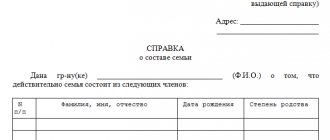The problem of donation becomes relevant when the owner of real estate is looking for an opportunity to register in the legal field his will to freely transfer to any person (most often a close relative) the rights to this real estate.
But what if the owner of the property wants to make a gift during his lifetime, but with the proviso that the new owner ( the donee) has the right to accept this gift only after the death of the donor.
The desire of the property owner to formalize just such a transaction is quite understandable. Many have heard about many years of litigation in which heirs are at odds with each other in attempts to challenge the will and divide the property of the testator (deceased) against his will. To stop disagreements between relatives, property owners are trying to find a way out by donating real estate during their lifetime.
However, the Civil Code of the Russian Federation (Civil Code of the Russian Federation) limits the circle of people willing to make such gifts. The restrictions are reasonable because they significantly protect the rights of living property owners.
As Part 2 of Art. 17 of the Civil Code of the Russian Federation, a citizen receives the opportunity to participate in civil transactions ( acquire rights and perform duties ) at the time of birth and loses this opportunity at the time of death. The obligation to donate an item that the donor undertakes under the gift agreement exists exactly as long as the donor is alive.
Attention
The person who accepted the gift must have time to formalize his right only as long as the donor is alive. It is considered that real estate has been accepted as a gift only after its state registration (Part 3 of Article 574 of the Civil Code of the Russian Federation). Otherwise, you will have to prove your right to the gift in court.
It is prohibited to include in the text of the deed of gift a condition that the recipient has the right to accept the gift (in the case of real estate, to register ownership) only after the death of the one who made such a gift (Part 3 of Article 572 of the Civil Code of the Russian Federation).
Concept and parties to the gift agreement
Despite the fact that the act of donation is called an agreement, civil law does not provide for any agreements between the donor and the donee. This is a one-sided transaction , under which only the donor has obligations.
Any mutually beneficial agreements must be made according to the rules of the purchase and sale agreement or other compensated transactions. The definition of donation is given in Part 1 of Art. 572 of the Civil Code of the Russian Federation, and, based on it, we can give the following characteristics to these legal relations.
- The donor undertakes the obligation to give the donee property (part of the property) that is owned by the donor.
- The donor is prohibited from demanding payment from the recipient for transferring the gift .
- Although the donee does not assume any obligations under the deed of gift, he is a party to this agreement and must sign it. Subsequently, the recipient has the right to refuse the gift. The procedure for signing the contract itself does not oblige the recipient to any action.
Agreement for donating an apartment after the death of the donor
The apartment donation agreement was registered after the death of the donor. In court, the gift agreement was not recognized as invalid due to the loss of legal capacity of the donor on the day of his death and the onset of inheritance rights arising from his son. The decisions of the district and regional courts state that the death of the donor is not a basis for declaring the gift agreement invalid. The supervisory appeal was denied. How can I turn this apartment into my property?
In accordance with sp. 2, Article 218 of the Civil Code of the Russian Federation, the right of ownership to property that the owner has can be acquired by another person on the basis of a contract of sale, exchange, donation or other transaction on the alienation of this property. In the event of the death of a citizen, the ownership of his property is inherited by other persons in accordance with a will or law.
Under a gift agreement, one party (the donor) gratuitously transfers or undertakes to transfer to the other party (the donee) an item of ownership or a property right (claim) to himself or to a third party, or releases or undertakes to release her from a property obligation to himself or to a third party (p 1, Article 572 of the Civil Code of the Russian Federation).
By virtue of paragraph 1 of Art. 164 of the Civil Code of the Russian Federation, transactions with real estate are subject to state registration in cases and in the manner provided for by the law on the registration of rights to real estate and transactions with it.
Based on clause 3 of Art. 574 of the Civil Code of the Russian Federation, an agreement for the donation of real estate is subject to state registration, comes into force (Article 425 of the Civil Code of the Russian Federation) and becomes binding on the parties from the moment of its conclusion.
An agreement subject to state registration is considered concluded from the moment of its registration, unless otherwise provided by law (clause 3 of Article 433 of the Civil Code of the Russian Federation).
According to the Federal Law of July 21, 1997 N 122-FZ On the state registration of rights to real estate and transactions with it, ownership and other real rights to real estate, restrictions on these rights, their occurrence, transfer and termination are subject to state registration in the Unified State Register by the bodies implementing state registration of rights to real estate and transactions with it.
Based on clause 7 of Art. 16 of Law N 122-FZ, the transaction is considered registered, and the legal consequences are considered to occur from the date of making an entry about the transaction or right in the Unified State Register. Thus, this Law gives legal significance not to the moment of submitting the necessary documents for registration of a transaction, but to the moment of making an entry about the transaction in the Unified State Register.
The legal capacity of citizens ends with death (clause 2 of article 17 of the Civil Code of the Russian Federation). In this regard, the donor's ownership of the apartment ceased at the time of his death. Clause 2 of Art. 218 of the Civil Code of the Russian Federation establishes that in the event of the death of a citizen, the ownership of his property is inherited by other persons in accordance with a will or law.
Article 166 of the Civil Code of the Russian Federation determines that a transaction is invalid on the grounds established by the Civil Code of the Russian Federation, due to its recognition as such by the court (voidable transaction) or regardless of such recognition (void transaction).
A transaction that does not comply with the requirements of the law or legal acts is void unless the law establishes that such a transaction is contestable or does not represent other consequences of the violation (Article 168 of the Civil Code of the Russian Federation).
In this regard, after the death of the donor, by virtue of clause 2 of Art. 218 of the Civil Code of the Russian Federation, the donor’s ownership of the property that belonged to him ceased and became hereditary. That is why in this case it can be considered that the transfer of ownership of the disputed real estate to the donee did not take place. In this case, the court may consider such a gift agreement not concluded and invalidate the issued certificate of state registration of the right to this apartment. This conclusion is confirmed by judicial practice (Determination of the Armed Forces of the Russian Federation dated January 26, 2010 No. 5-B09-147).
The second point of view is based on the following.
Since the gift agreement was submitted for registration before the death of the donor, and the transfer of ownership occurred after his death, in this case, some courts believe that this circumstance cannot serve as a basis for recognizing the gift agreement as not concluded, since the donor, being of sound mind, During his lifetime, he expressed his will to alienate the property belonging to him, and did not subsequently take any actions aimed at withdrawing his application (decision of the Moskovsky District Court of Cheboksary dated May 26, 2009).
So, in our opinion, the first point of view is considered correct, when if the owner dies before the registration of the gift agreement, such an agreement by virtue of clause 3 of Art. 433 Civil Code of the Russian Federation, paragraph 3 of Art. 574 of the Civil Code of the Russian Federation is void, and the certificate of state registration of rights is invalid.
To protect your interests, you can file a complaint with the Presidium of the Chelyabinsk Regional Court, setting out the grounds indicated in the first point of view. In your complaint, you must provide a link to the Ruling of the RF Armed Forces dated January 26, 2010 N 5-B09-147, the position of which will form the basis of your complaint. If the Presidium of the Chelyabinsk Regional Court refuses to satisfy the complaint, the final authority in your legal process will be the Supreme Court of the Russian Federation, where you should file a complaint.
On the territory of the Russian Federation, there are only two types of gratuitous transfer of real estate into the ownership of another person - drawing up a will with subsequent inheritance and signing a deed of gift.
These two documents differ significantly from each other and, first of all, in when the transfer of ownership rights to property takes place according to the law. The Civil Code of the Russian Federation states that an inheritance case can be opened only after the death of the owner. The donation agreement comes into force from the moment it is signed.
Donating an apartment is only possible if the property is privatized. Since the deed of gift is essentially gratuitous, this means that the donor, by law, cannot set any conditions for the donee and cannot receive any benefit from such a transaction. That is why, having decided to draw up a deed of gift, you should clearly understand that by signing the agreement, the owner will be completely deprived of the rights to the donated property. In this regard, questions arise as to whether a transaction is possible that comes into force only after the donor has died.
Dear readers!
Our articles talk about typical ways to resolve legal issues, but each case is unique. If you want to find out how to solve your specific problem, please contact the online consultant form on the right →
It's fast and free!
Or call us by phone (24/7):
Form of gift agreement
According to the general rules of civil proceedings, a gift can be made in two forms:
- by oral application (Part 1 of Article 574 of the Civil Code of the Russian Federation);
- execution of a written document (Part 2 of Article 574 of the Civil Code of the Russian Federation).
Important
A verbal order for a gift that the donee can accept only after the death of the donor is illegal. This rule applies to gifts between citizens of cars, household items (furniture, household appliances, etc.), and any movable property.
The form of the real estate gift transaction is more strict:
- Real estate can only by written agreement;
- a written deed of gift must undergo mandatory state registration (Part 3 of Article 574 of the Civil Code of the Russian Federation);
- a notarized form of certification of the transaction is not mandatory . Roughly speaking, the donor has the right to write a gift agreement by hand, and the recipient of the gift will be able to transfer the property to himself under this agreement;
- all terms of the gift agreement must be set out in accordance with Russian legislation and civil rules. That is why those wishing to make a gift are recommended to contact notaries to draw up a notarized gift agreement, since the notary will be able to draw up the correct text of the transaction. Moreover, he bears financial responsibility for errors made in the contract. The fact that the law does not indicate that a notarial form is mandatory does not exclude the right of a party to contact a notary on its own initiative.
- An agreement drawn up in violation of civil law will not pass state registration.
Subject of the gift agreement
Property that can be donated should not be excluded from civil circulation .
Ownership rights must be registered in accordance with the norms of the legislation that was in force at the time the ownership rights arose. This is especially true for rebuilt or completed real estate properties. A property that does not comply with the documents cannot be transferred as a gift.
Additionally
The contract may contain a promise of a gift in the future .
Moreover, it is valid only if it is concluded in writing and contains a clear intention to complete the transaction. The subject of the donation must be specified in detail in the deed of gift . If we are talking about real estate, then the address, area, and title documents for the object must be included (Part 2 of Article 572 of the Civil Code of the Russian Federation).
The object of the deed of gift - what can act as a gift in 2021
The object of donation in 2021 can be any property rights or benefits that are not excluded from civil circulation!
ARTICLE RECOMMENDED FOR YOU:
Agreement for the donation of an apartment between close relatives in 2021 - MFC form
In addition, the ownership of an item donated free of charge must be registered in accordance with the laws in force at the time of the emergence of this ownership. This is especially true for real estate objects that have been completed or rebuilt, and their current plan differs from the previously approved one. Thus, real estate that does not comply with the documentation cannot act as an object of donation!
Lawyer's Note
We remind our visitors that a gift agreement can be not only real, but also consensual! Simply put, it can be in writing and contain a promise by the donor to carry out a transaction in favor of the donee in the future.
Also, do not forget that one of the fundamental norms when drawing up an agreement is a detailed indication in the content of the gift agreement of all the important characteristics and properties of the object of the gift, distinguishing it from other similar objects.
For example, if the gift is real estate, then, according to Part 2 of Article 572 of the Civil Code, the content should include:
- physical address of the object;
- its actual area (residential and non-residential);
- title documents for real estate, etc.
Is it possible to give after death?
As can be seen from a systematic analysis of civil law norms, a gift agreement, according to which the recipient accepts the gift only after the death of the donor, cannot be concluded by the parties .
In addition, the Civil Code of the Russian Federation has a direct ban on concluding such agreements (Part 3 of Article 572 of the Civil Code of the Russian Federation). According to this norm, such a gift is void.
Important
If the contract itself contains a condition that the recipient of the gift has the right to accept it (register ownership) only after the death of the giver, then such a transaction is void .
If there is no clause in the contract, but in fact the recipient did not accept the gift (did not register) during the life of the donor. After the donor has died, re-registration will be possible only after a positive completion of the legal battle to recognize the deed of gift as valid.
When dealing with a void deed of gift, you need to realize that there is no need to challenge this document in court, since in accordance with Part 1 of Art. 166 of the Civil Code of the Russian Federation, such a gift is initially void and not controversial . This is important because courts only consider disputes between citizens.
General introductory information
Every year, more and more Russians want to transfer their property or a certain part of it to their loved ones, observing all the necessary legal norms. At the same time, many of them want to transfer free of charge ownership of property only after their death, wanting to avoid problems with relatives and drawing up a will. There are no problems in cases where a person wishes to transfer property during his or her lifetime. A gift transaction is quite suitable for this.
The problem arises when the owner seeks to transfer the right to use the gift to others during his lifetime, but with the condition that ownership will pass to these persons only after his death.
Expert opinion
Oleg Ustinov
Practicing lawyer, author of the website “Legal Ambulance”, one of the co-founders of the “Our Future” foundation.
Considering the numerous legal proceedings between heirs, as well as conflicts and “schisms” within families, the above-described desire of the owners is considered quite logical. After all, in this way, it is possible to improve the quality of life for certain individuals right now, without worrying that their rights may be challenged by other heirs in the future.
Let us immediately note that, according to the current legislation of the Russian Federation, not everyone can make such gifts! At the same time, the restrictions established by the legislator are, first of all, aimed precisely at protecting the rights of living owners of property benefits.
Thus, based on the information published in Part 2 of Article 17 of the Civil Code of the Russian Federation, a citizen receives the opportunity to participate in the role of one of the parties to the deed of gift (that is, is endowed with the ability to accept and transfer things) at the moment of birth, and loses these rights and obligations at moment of death.
Thus, the obligation to transfer property, which is formed when concluding a gift agreement, can only exist during the life of the donor. Simply put, the donee must have time to re-register ownership during the life of the donor! This is especially true for gifts that require, according to Part 3 of Article 574 of the Civil Code of the Russian Federation, mandatory state registration (such, for example, include a private house or vehicle). Otherwise, the party accepting the gift will need to defend its rights to it in court.
ARTICLE RECOMMENDED FOR YOU:
Real gift agreement - what do you need to know about the transaction?
The situation is complicated by the fact that when drawing up a deed of gift, the parties are prohibited from introducing into it any conditions relating to the acceptance of the gift after the death of the donor (Article 572 3 of the Civil Code).
However, there is a way out of this situation. But, for this, it is necessary to understand how donation “works” from the inside.
Consequences of donation after death
Sometimes heirs are faced with situations where, after the death of a relative, it turns out that all or part of his property was donated. In such cases, the recipient of the gift provides the heirs with a gift agreement to confirm his rights.
Heirs have the right to disagree with the testator’s gift in the following cases:
- if at the time of opening of the inheritance (death) the property has not actually been donated (there is a condition in the agreement that the recipient accepts the gift only after the death of the donor);
- if in the deed of gift the donor disposed of property that did not belong to him. Most often this concerns movable property. For example, he donated furniture from his apartment, which belonged in equal shares to his wife.
Additionally
When it is established that the gift agreement is void , this is reported to the notary who is in charge of the inheritance case. In this case, the notary is obliged to be guided by the consequences of a void transaction, which are determined by Part 1 of Art. 167 of the Civil Code of the Russian Federation, that such a transaction does not entail any consequences .
If the testator left a will with the wording according to which he bequeaths to the heirs all his movable and immovable property in certain shares, the gift for a void transaction is included in the inheritance and is distributed among the heirs in those parts determined by the testator.
If a will is drawn up for specific objects of civil rights , then the heirs inherit the inheritance due to them under the will, and the property included in the inheritance as an insignificant gift is inherited according to the rules of inheritance by law.
If the testator did not leave a will , all his property, including an insignificant gift, is inherited among the heirs according to the law.
Alternative to donation after death
An alternative is a will . In a will, everyone has the right to dispose of property at their own discretion. To exercise this right, the testator, when drawing up a will, can:
- bequeath all your property to a specific person . However, such wills are most often contested, since the testator often has heirs who have the right to claim an obligatory share in the inheritance;
- bequeath specific property to specific persons . Such wills are difficult to challenge. But the person who draws up the will must ensure that the inheritance (for example, an apartment) is properly formalized and registered with government authorities, since otherwise the heir will not have rights to the unregistered piece of real estate.
Example
The father gave his son an apartment. The contract was certified by a notary. However, the son did not have time to register the apartment in his name before his father’s death. After the death of his father, his wife, with whom he did not live together, but did not formally file a divorce, filed an application to accept the inheritance. The notary established that the apartment donated to the son under the contract has not yet been registered in the son’s name, and on the basis of Part 3 of Art. 572 of the Civil Code of the Russian Federation included the apartment as part of the inheritance. The son filed an application to the court to recognize the donation as valid. Since the son had in his hands the act of acceptance and transfer of the apartment and the title documents on it, the court recognized that in fact the son accepted the gift from the donor and the gift agreement took place. Based on a court decision, the apartment was excluded from the inheritance.






